
- 1 Nov 2025
- Vivienne Claymore
- 9
In Forest Gate, a quiet stretch of East London where the railway lines hum and the corner shops still open at 7 a.m., something quietly unusual has been growing. It’s not the kind of thing you hear about on the news or see in tourist brochures. But if you walk past the bus stops near the Forest Gate Library or sit in the café across from the park on a Friday evening, you might notice a pattern: women in tailored coats, waiting near the entrance of the Tesco Extra, or slipping into a car with a man who doesn’t live here. These aren’t random encounters. They’re part of a discreet, long-standing escort presence that’s woven into the fabric of this working-class suburb - not flashy, not loud, but undeniably there.
How Forest Gate Became a Quiet Hub for Independent Escorts
Forest Gate isn’t Stratford. It’s not Walthamstow. It doesn’t have the glitter of West End nightlife or the high-end apartments of Canary Wharf. But that’s exactly why it works. The area is densely populated, well-connected by the Elizabeth Line and the Overground, and sits just outside the zone where police surveillance is most visible. Landlords here are used to short-term tenants. The local pubs don’t ask questions. And for women working independently, it’s a sweet spot: affordable rent, easy access to central London, and a community that mostly looks away.
Unlike in areas like Clapham or Chelsea, where agencies dominate, Forest Gate’s escort scene is almost entirely independent. Most women work alone, using Instagram and private Telegram groups to connect with clients. Many are students from nearby universities, single mothers from the Romford area, or women who moved here after leaving abusive relationships. One woman, who asked to be called ‘Lena,’ told me over coffee near the Forest Gate Station: “I don’t need a fancy apartment or a limo. I need to pay the bills and keep my son in school. This lets me do that without anyone knowing.”
Where It Happens - And Where It Doesn’t
The activity isn’t spread evenly. You won’t find escorts near the Forest Gate Primary School or the community centre on Ilford Road. But walk half a mile south toward the A12, near the petrol station and the closed-down betting shop, and you’ll see the same cars parked at odd hours. The same goes for the alley behind the Turkish takeaway on Barkingside Road - a place locals call “the quiet corner.”
Contrast this with nearby Newham, where agencies operate openly in converted flats near the West Ham station. Or with Ilford, where the escort scene is more transactional and fast-paced. Forest Gate is different. It’s slower. More personal. Clients often return. Some have been coming for years. A few even bring their partners - not for group encounters, but because they’ve built trust.
Who Comes Here - And Why
Forest Gate attracts a specific kind of client. Not the flashy businessman from the City, but the quiet ones: the delivery driver from Barking, the nurse from Romford, the retired teacher from Leytonstone. Many are married. Some are lonely. Others just want to talk. One regular, a 58-year-old electrician from Wanstead, said he’d been coming for eight years. “It’s not about sex,” he told me. “It’s about someone who remembers your name and doesn’t judge you for being tired.”
There are also expats - men from Eastern Europe and the Middle East who live in the area but don’t know how to navigate London’s social scene. For them, Forest Gate offers anonymity and safety. No one asks where they’re from. No one takes a photo. No one reports them.
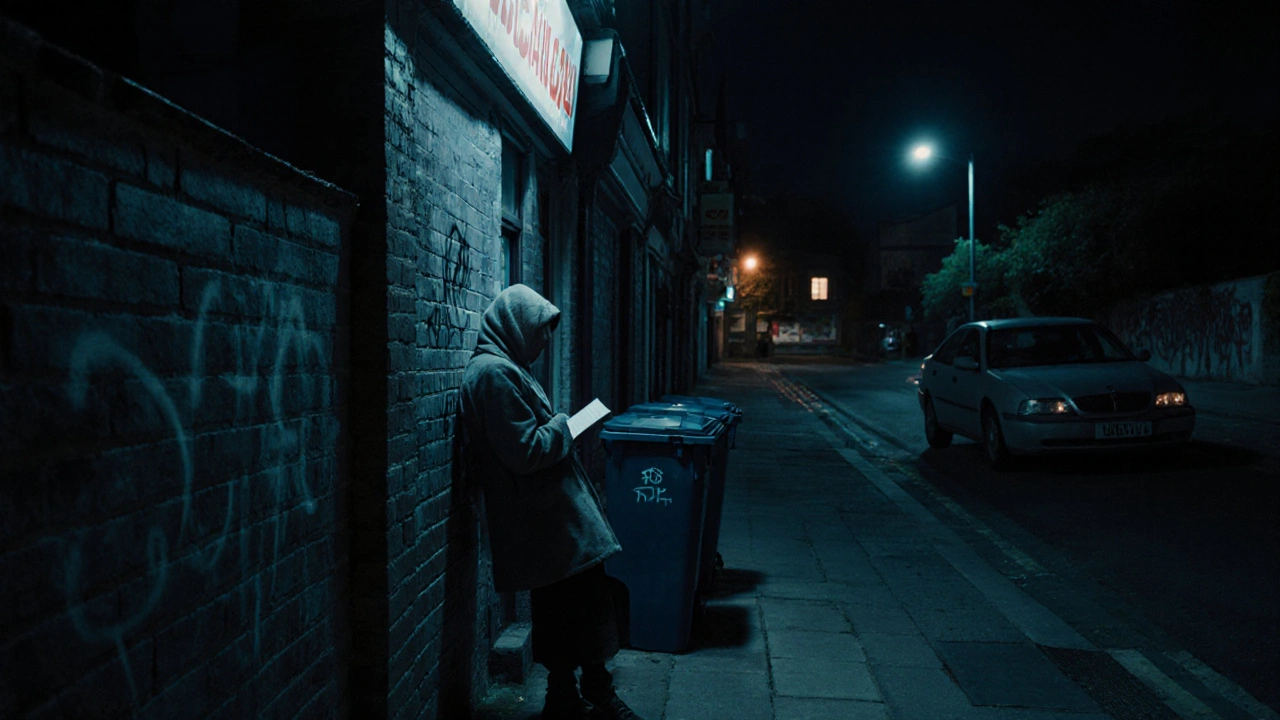
The Local Response - Silence as a Shield
Most residents don’t talk about it. Not because they approve, but because they’ve learned to live with it. The local council doesn’t intervene. The police don’t patrol the alley behind the takeaway. The community board met last year to discuss “anti-social behaviour” - but the term was never defined. No one mentioned escorts.
There’s a quiet understanding here. People know. But they don’t want the stigma. They don’t want the media. They don’t want the property values to drop. So they keep quiet. And in that silence, the service continues - not as a scandal, but as a hidden support system.
How It Compares to Other Parts of East London
Compare Forest Gate to Stratford. In Stratford, you’ll find agencies with websites, Instagram profiles, and even branded vans. Clients book online. Prices are fixed. You get a checklist: 60 minutes, 90 minutes, luxury hotel, extra services. It’s efficient. It’s clinical.
In Forest Gate? No websites. No reviews. No profiles. You find someone through a friend of a friend. You text a number. You meet in a quiet hotel on the edge of the borough - the Premier Inn near the A13, or the Travelodge in Barking. The price? £80 to £150. Cash only. No receipts. No receipts means no trace.
Even in nearby Barking, where the escort scene is more visible, you’ll see women waiting outside the 24-hour laundrette. In Forest Gate, they wait in cars. Or in the back of the local library’s parking lot, where the CCTV camera hasn’t worked since 2022.
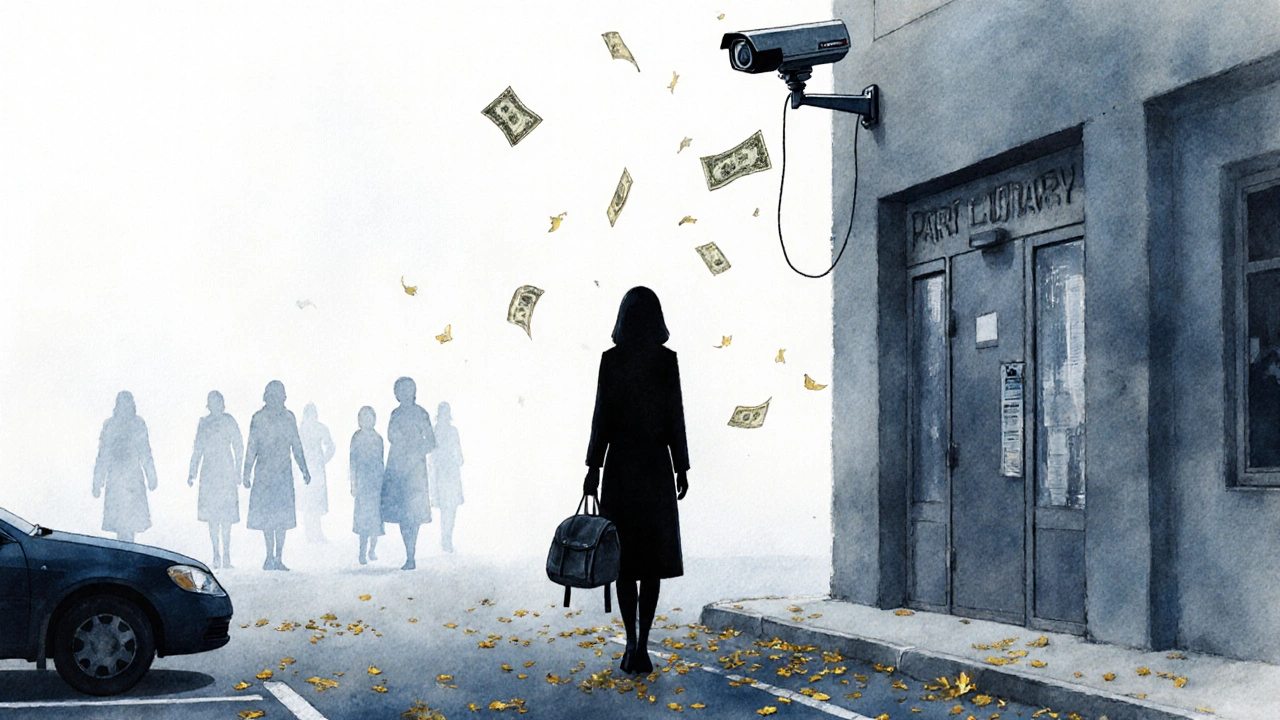
What’s Changing - And What Isn’t
Since the pandemic, things have shifted. More women are working from home. Some use Zoom calls for companionship. Others meet clients in Airbnb rentals booked under fake names. A few have moved to Romford or Dagenham, where rents are cheaper and scrutiny is lower.
But the core hasn’t changed. Forest Gate still offers what few other places in London do: privacy without the price tag, safety without the bureaucracy, and dignity without the judgment. It’s not glamorous. It’s not legal. But it’s real.
And for the women who work here - many of whom have no other options - it’s survival.
Why This Matters Beyond Forest Gate
This isn’t just about one suburb. It’s about what happens when cities ignore the people who fall through the cracks. Forest Gate’s escort scene isn’t a problem to be solved. It’s a symptom - of housing insecurity, of wage stagnation, of isolation in a city of millions.
When you hear about “London escorts,” you think of Mayfair. You think of luxury. But in Forest Gate, it’s different. It’s about a single mother working nights so her child can eat. It’s about a man who hasn’t had a hug in two years. It’s about a system that offers no safety net - so people build their own.
If you’re looking for answers, don’t ask the police. Don’t ask the council. Ask the woman who serves your coffee at the corner shop. She might not say it out loud. But she knows.

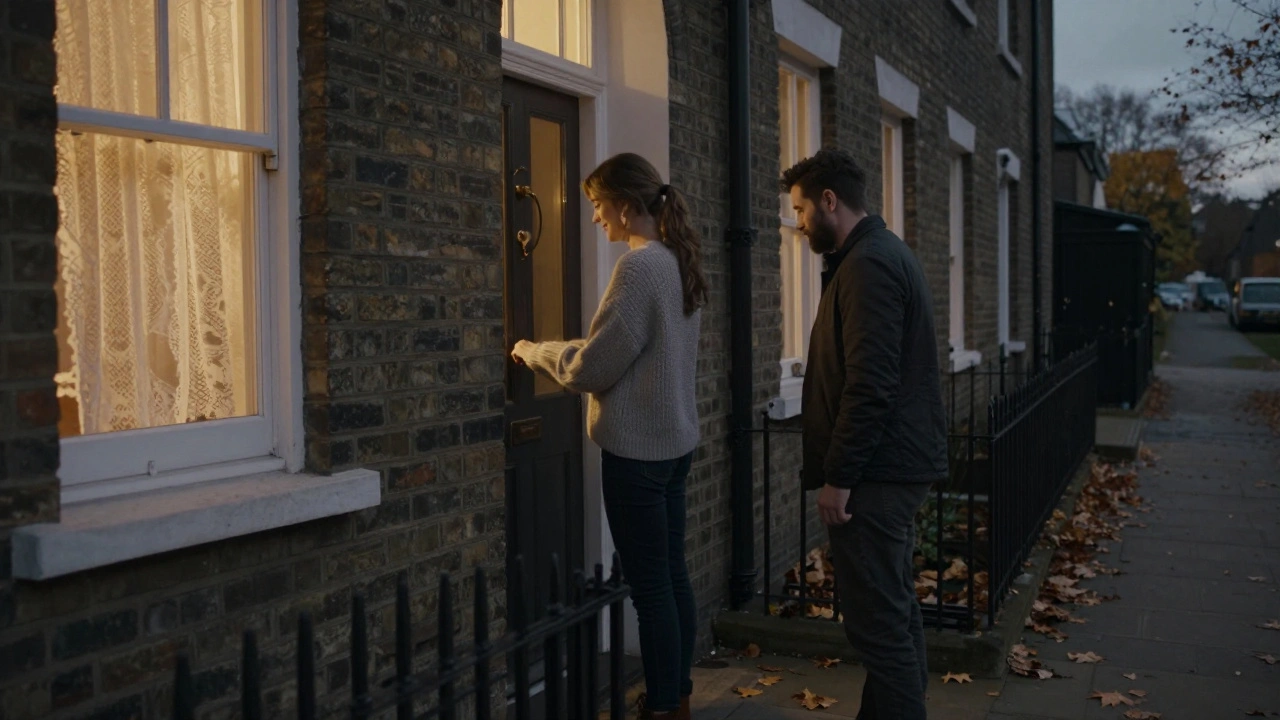
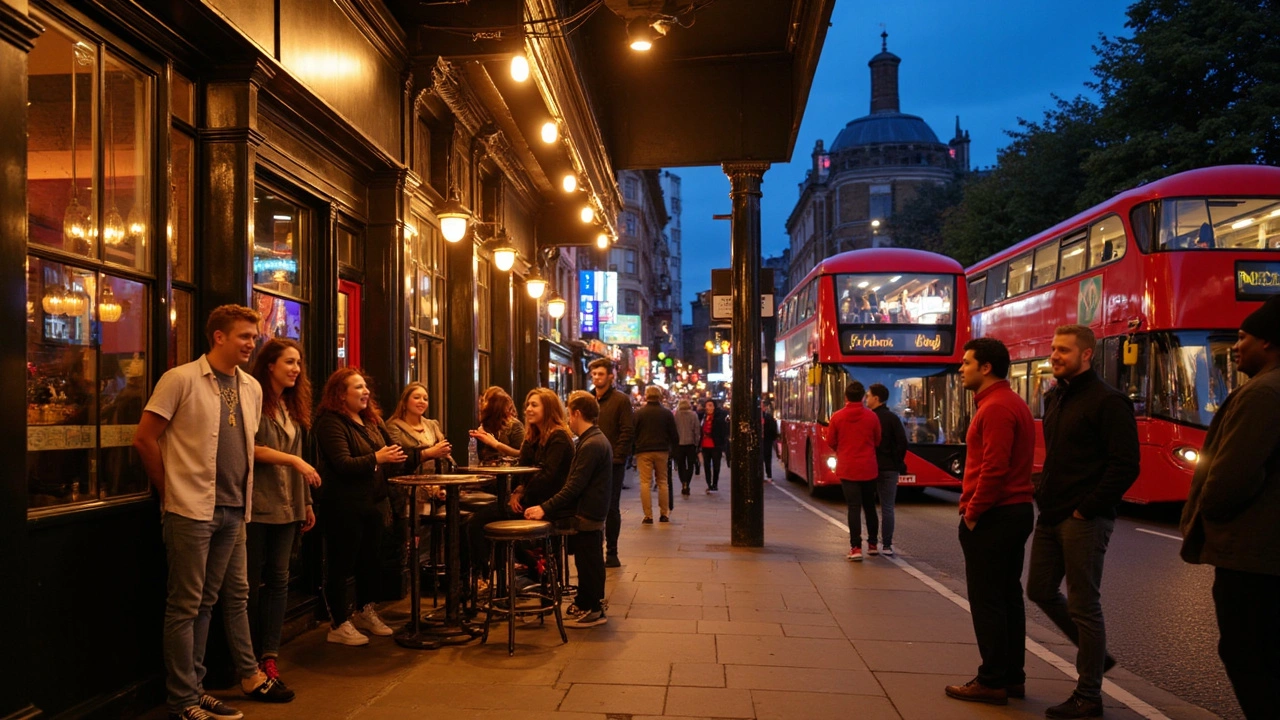
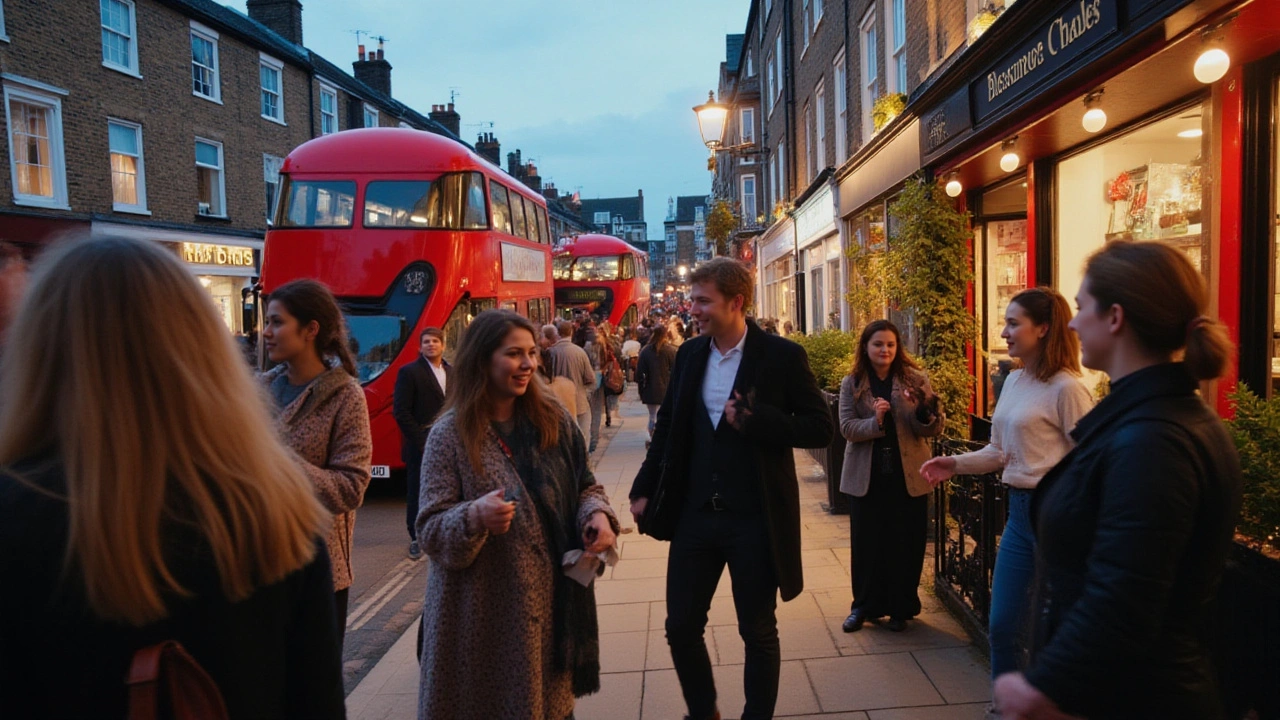
9 Comments
It is, without a doubt, a fascinating sociological case study in urban marginality and informal economic adaptation. The phenomenon described in Forest Gate exemplifies what anthropologists refer to as ‘hidden economies of survival’-a term coined by Dr. Eleanor Rourke in her 2018 monograph on post-industrial labor markets. The absence of institutional oversight, coupled with the tacit social contract of non-interference among residents, creates a de facto regulatory space that mirrors historical precedents in post-war Berlin and 1980s Los Angeles. What is particularly compelling is the linguistic and spatial codification of the activity: the use of unmonitored parking lots, the reliance on encrypted messaging platforms, and the avoidance of digital footprints all suggest a highly evolved form of adaptive resilience. This is not merely transactional sex work; it is a complex, self-sustaining ecosystem born of systemic failure in housing, healthcare, and wage policy.
Actually, the term ‘escort’ is semantically inaccurate here. These individuals are engaged in consensual adult companionship services, which, under UK law, falls under the category of ‘prostitution’ only if payment is exchanged for sexual acts. The article conflates emotional labor with sexual commerce, thereby perpetuating a reductive moral framework. Furthermore, the phrase ‘no receipts means no trace’ is legally nonsensical-financial transactions leave digital breadcrumbs regardless of currency type. The use of ‘independent’ is also misleading; true independence implies autonomy over pricing, location, and client selection, none of which are verifiable here. This piece reads like an op-ed masquerading as ethnography.
There’s a lot of truth here, and I’ve seen similar patterns in places like Camden and Peckham. The key thing people miss is that this isn’t about crime-it’s about need. Women who do this often have no access to childcare, no family support, and jobs that pay £10 an hour. They’re not choosing this because they want to; they’re choosing it because it’s the only way to keep a roof over their head. The fact that clients come back year after year? That’s not about lust. That’s about loneliness. People don’t realize how isolated so many are in this city. A hug, a conversation, someone who remembers your kid’s name-that’s priceless. And yeah, it’s messy. But it’s human.
I’ve lived in East London for over 20 years, and I’ve seen this kind of thing in every neighborhood. It’s not new. It’s not shocking. It’s just part of how people survive. I used to work nights at the Tesco in Forest Gate, and I’d see the same women every Friday. They’d be dressed nice, waiting by the entrance. Never loud. Never pushy. Just quiet. And the men who came? Mostly older guys, tired-looking, sometimes with their jackets on inside the car. One time, I saw a man bring his daughter with him-she was maybe ten. He didn’t go inside. He just sat in the car with her while she read a book. I didn’t say anything. I didn’t judge. I just thought: that’s his way of giving her a good night. Sometimes, people do what they have to do. And if nobody gets hurt, maybe that’s enough.
They’re using this as a cover for human trafficking. The ‘independent’ women? All controlled. The ‘quiet corner’? A front for a Romanian syndicate. The CCTV camera broken since 2022? Too convenient. The ‘regulars’? Probably undercover cops or MI5 agents testing local compliance. They don’t want you to know how deep this goes. The council’s silence? That’s the real story. They’re all in on it. Look at the Elizabeth Line-built right through here. Coincidence? I think not.
It’s survival. Not choice. No one cares. That’s the point.
While the sociological implications are compelling, I must note a minor grammatical inconsistency in the original text: the phrase ‘no receipts means no trace’ should be ‘no receipts mean no trace,’ as the subject is plural. Additionally, the use of ‘it’s’ in ‘it’s survival’ is correct, but the lack of a comma before the coordinating conjunction in the final sentence weakens the rhetorical cadence. That said, the content is profoundly moving. The quiet dignity of these individuals deserves recognition, not sensationalism. This is not a scandal-it is a mirror.
Actually, you misused ‘discreet’ in the opening paragraph. ‘Discreet’ means tactful or unobtrusive, but you used it to mean ‘hidden’ or ‘secret.’ The correct term would be ‘covert.’ Also, ‘tailored coats’ is redundant-coats are inherently tailored if they’re well-made. And ‘sweet spot’ is colloquial and unprofessional in this context. You should say ‘optimal geographic and socioeconomic niche.’ Also, ‘Romford area’ is not a recognized administrative region-it’s just Romford. And you said ‘no receipts means no trace’-but cash transactions still leave traces via surveillance, witness testimony, or financial patterns. This entire piece is riddled with imprecise language. The subject matters, but your writing undermines it.
You call this ‘survival’? Fine. But don’t romanticize it. These women are vulnerable. They’re being exploited by a system that offers them nothing else. And you think silence is a shield? It’s complicity. The council doesn’t act because they’re afraid of backlash. The police don’t patrol because they don’t want to admit they failed. The neighbors look away because they’re scared of being next. This isn’t dignity. This is desperation dressed up as poetry. And if you’re not calling for policy change, housing reform, and wage increases-you’re part of the problem. This isn’t a story about quiet resilience. It’s a story about a city that gave up. And that’s not okay.